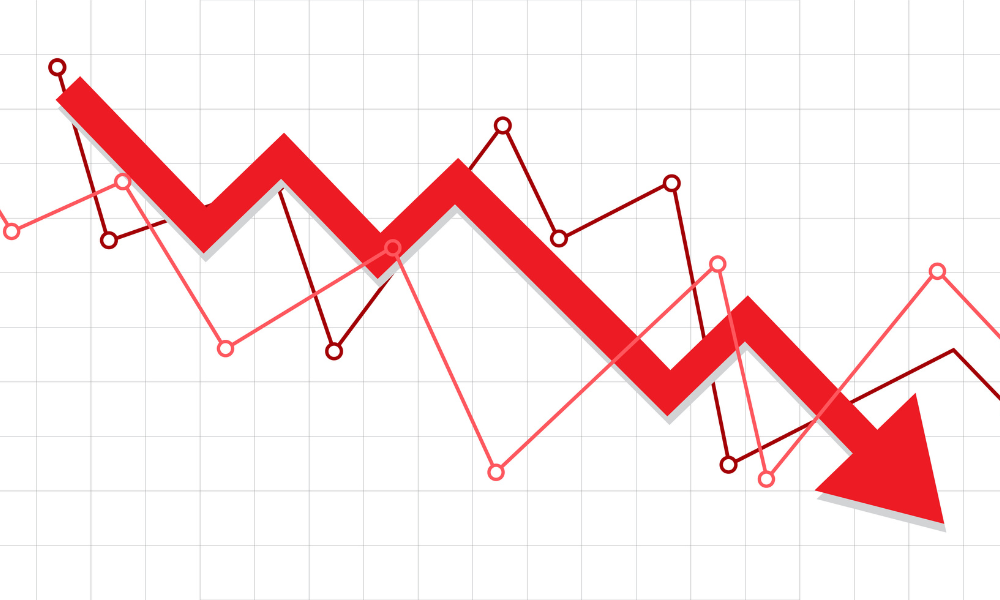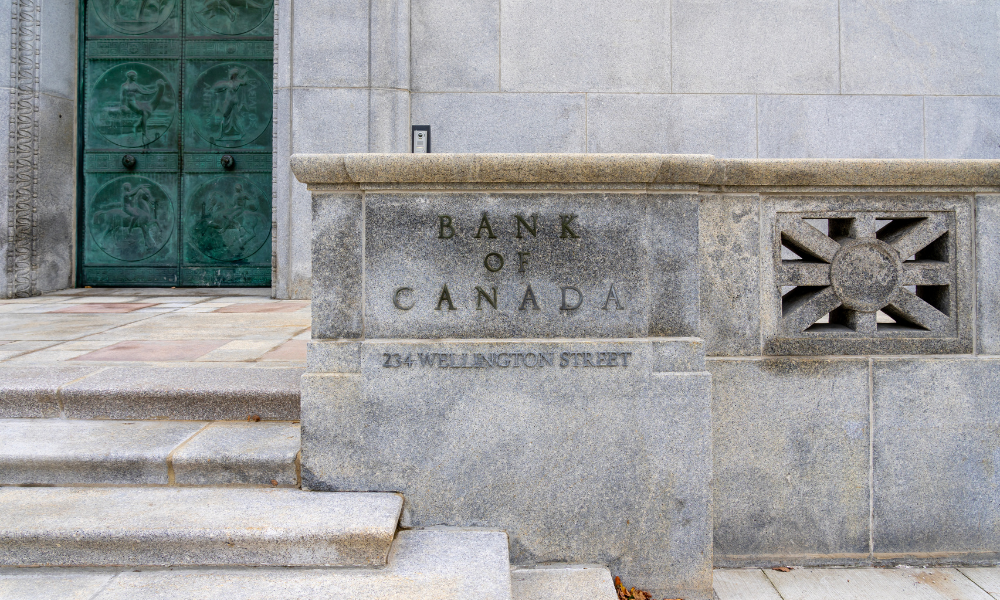Howard Atkinson, the “face of the Canadian ETF industry,” is looking for a new challenge after announcing his retirement
A book changed everything.
After spending a large part of the ’80s and ’90s in the mutual fund industry, Howard Atkinson was taking a break after leaving CI Financial.
“I was really minding my own business,” he says. “I was renovating a house and working on my golf game in the summer, and I was reading this book called The New, New Thing.”
It was Michael Lewis’ book about Jim Clark, whose achievements include the founding of three separate billion-dollar companies.
“I was reading this and I’m going, ‘This is exactly what I’m looking for in financial services. I’m looking for the new, new thing.”
Within a few days, Atkinson received a call from a firm telling him about a job at Barclays Global Investors. “It was about something called ETFs, and they’re launching this thing called iShares,” he recalls.
He wasn’t really looking for a new job, but he went to the interview and listened to their proposal.
“I said, ‘Holy smokes! This is the new, new thing in financial services. I need to be a part of it,’” he says. “And the rest, as they say, is history.”
While he got his start in ETFs with Barclays, Atkinson made his name at Horizons ETFs. After joining in 2006, he helped grow the company to the point where it now has more than $5.1 billion in assets under management and 70 ETFs listed on the Toronto Stock Exchange. But he stepped away from the company at the end of 2015.
“Howard Atkinson has not only been the face of Horizons ETFs for the last decade, but in many ways has also been the face of the Canadian ETF industry,” says Steven Hawkins, co-CEO of Horizons ETFs.
At the forefront
Atkinson’s initial foray into ETFs was just over 15 years ago – and a lot has changed since then. When Atkinson first started in ETFs, there was only one in Canada, representing $3.5 billion in assets. Today there are close to 400 and $85 billion in assets.
While ETFs have come a long way, it wasn’t always smooth sailing.
“Some people laughed at me at the beginning, but it turns out that ETFs democratized investing,” Atkinson says. “I can’t think of any other security or financial product, with the exception of individual stocks and bonds that an individual will own, that an advisor will put in client’s portfolios and institutions will own. I thought they were a game-changer at the time.”
But it took a long time to change the game. The first hurdle was a credibility issue: Before the companies in the space could compete against each other, they had to work together to ensure their fledgling product gained acceptance in the industry.
It was a similar situation to what the mutual fund world went through a decade or two earlier.
“ETFs were only going to get recognized and adopted if there’s competition and more than one provider,” Atkinson says. “Otherwise you can kind of say, ‘Ah, it’s a one-off.’”
The turning point came in 2005 when Claymore, Horizons and others entered the market, offering serious competition.
“That’s when the industry really started to innovate, and we started to have a wide array of choices in ETFs – you start with fee compression, and it really became the industry that it is today.”
But not only did they have to overcome a rigid industry, they also had to contend with the scourge of many an advisor: regulators.
When Barclays launched their products, the OSC wouldn’t allow them to be called iShares, instead insisting on iUnits. The regulator claimed they were legally mutual fund trust units, and therefore using the word ‘shares’ might confuse investors into thinking they’re stock shares.
“Everywhere in the world, it was and continues to be iShares, but in Canada for the first five years or so, we were forced to use the term iUnits,” Atkinson says. The OSC eventually relented and agreed to the name iShares after a regime change.
ETFs and CRM2
Perhaps, then, it’s ironic that regulation is now giving ETFs the opportunity to thrive.
“CRM2 is a game-changer that plays into the hands of low-fee funds, including ETFs,” Atkinson says. “With the eye-opening experience of CRM2 for many investors and some advisors, that’s going to lend itself to more ETFs.”
The advent of MFDA-licensed dealers being able to sell ETFs and the rise of digital wealth managers also bode well. “Those are all strong trends in favour of ETFs going forward to continue this good growth rate, I think, for the foreseeable future,” Atkinson says.
But while ETFS are seemingly poised for continued growth, Atkinson is ready to slow down.
“I’m going to take a break and catch my breath,” he says. “I think my wife has a big long list of stuff for me to do. I do have some stuff to take care of on the home front … I want to spend some more family time.”
Despite having plenty to keep him busy, the book that inspired him once might yet drive the next chapter of Atkinson’s life.
“I am going to look around for … the new, new, new thing and see what’s out there.”
Howard Atkinson is the retiring president of Horizons ETFs Management (Canada). In his 29 years in the industry he has authored four books, including The New Investment Frontier III: A Guide to Exchange Traded Funds for Canadians. In February 2010, Atkinson was recognized by ACTIF, Quebec’s premier financial education co-operative, as a Top Educator for his efforts to foster financial literacy among Canadians.
After spending a large part of the ’80s and ’90s in the mutual fund industry, Howard Atkinson was taking a break after leaving CI Financial.
“I was really minding my own business,” he says. “I was renovating a house and working on my golf game in the summer, and I was reading this book called The New, New Thing.”
It was Michael Lewis’ book about Jim Clark, whose achievements include the founding of three separate billion-dollar companies.
“I was reading this and I’m going, ‘This is exactly what I’m looking for in financial services. I’m looking for the new, new thing.”
Within a few days, Atkinson received a call from a firm telling him about a job at Barclays Global Investors. “It was about something called ETFs, and they’re launching this thing called iShares,” he recalls.
He wasn’t really looking for a new job, but he went to the interview and listened to their proposal.
“I said, ‘Holy smokes! This is the new, new thing in financial services. I need to be a part of it,’” he says. “And the rest, as they say, is history.”
While he got his start in ETFs with Barclays, Atkinson made his name at Horizons ETFs. After joining in 2006, he helped grow the company to the point where it now has more than $5.1 billion in assets under management and 70 ETFs listed on the Toronto Stock Exchange. But he stepped away from the company at the end of 2015.
“Howard Atkinson has not only been the face of Horizons ETFs for the last decade, but in many ways has also been the face of the Canadian ETF industry,” says Steven Hawkins, co-CEO of Horizons ETFs.
At the forefront
Atkinson’s initial foray into ETFs was just over 15 years ago – and a lot has changed since then. When Atkinson first started in ETFs, there was only one in Canada, representing $3.5 billion in assets. Today there are close to 400 and $85 billion in assets.
While ETFs have come a long way, it wasn’t always smooth sailing.
“Some people laughed at me at the beginning, but it turns out that ETFs democratized investing,” Atkinson says. “I can’t think of any other security or financial product, with the exception of individual stocks and bonds that an individual will own, that an advisor will put in client’s portfolios and institutions will own. I thought they were a game-changer at the time.”
But it took a long time to change the game. The first hurdle was a credibility issue: Before the companies in the space could compete against each other, they had to work together to ensure their fledgling product gained acceptance in the industry.
It was a similar situation to what the mutual fund world went through a decade or two earlier.
“ETFs were only going to get recognized and adopted if there’s competition and more than one provider,” Atkinson says. “Otherwise you can kind of say, ‘Ah, it’s a one-off.’”
The turning point came in 2005 when Claymore, Horizons and others entered the market, offering serious competition.
“That’s when the industry really started to innovate, and we started to have a wide array of choices in ETFs – you start with fee compression, and it really became the industry that it is today.”
But not only did they have to overcome a rigid industry, they also had to contend with the scourge of many an advisor: regulators.
When Barclays launched their products, the OSC wouldn’t allow them to be called iShares, instead insisting on iUnits. The regulator claimed they were legally mutual fund trust units, and therefore using the word ‘shares’ might confuse investors into thinking they’re stock shares.
“Everywhere in the world, it was and continues to be iShares, but in Canada for the first five years or so, we were forced to use the term iUnits,” Atkinson says. The OSC eventually relented and agreed to the name iShares after a regime change.
ETFs and CRM2
Perhaps, then, it’s ironic that regulation is now giving ETFs the opportunity to thrive.
“CRM2 is a game-changer that plays into the hands of low-fee funds, including ETFs,” Atkinson says. “With the eye-opening experience of CRM2 for many investors and some advisors, that’s going to lend itself to more ETFs.”
The advent of MFDA-licensed dealers being able to sell ETFs and the rise of digital wealth managers also bode well. “Those are all strong trends in favour of ETFs going forward to continue this good growth rate, I think, for the foreseeable future,” Atkinson says.
But while ETFS are seemingly poised for continued growth, Atkinson is ready to slow down.
“I’m going to take a break and catch my breath,” he says. “I think my wife has a big long list of stuff for me to do. I do have some stuff to take care of on the home front … I want to spend some more family time.”
Despite having plenty to keep him busy, the book that inspired him once might yet drive the next chapter of Atkinson’s life.
“I am going to look around for … the new, new, new thing and see what’s out there.”
Howard Atkinson is the retiring president of Horizons ETFs Management (Canada). In his 29 years in the industry he has authored four books, including The New Investment Frontier III: A Guide to Exchange Traded Funds for Canadians. In February 2010, Atkinson was recognized by ACTIF, Quebec’s premier financial education co-operative, as a Top Educator for his efforts to foster financial literacy among Canadians.



